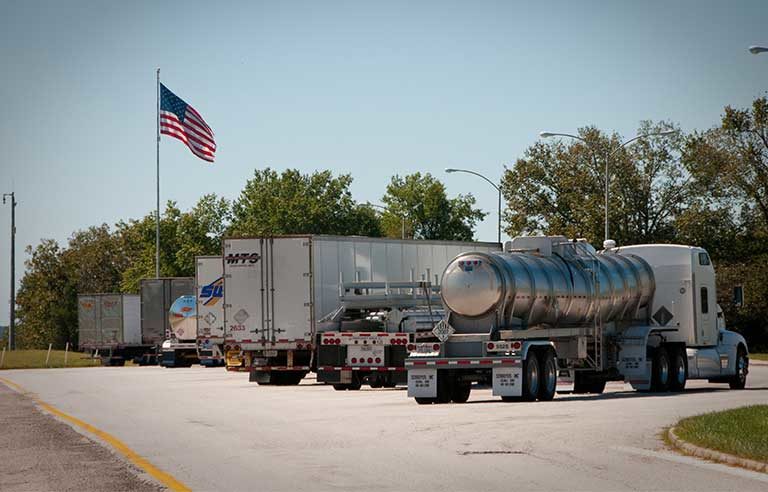Trucker access to parking and rest facilities part of supply chain bill

Washington — Measures for expanded access to parking and rest facilities are included in recently proposed bipartisan legislation aimed at revamping the interstate trucking supply chain system.
Introduced Jan. 24 by Reps. Dusty Johnson (R-SD) and Jim Costa (D-CA), the Safer Highways and Increased Performance for Interstate Trucking Act (H.R. 471) would permit the transportation secretary to issue grants for projects that provide truck parking. Those grants would total $175 million in fiscal year 2023 and a combined $580 million over the next three fiscal years.
In step with a Senate bill (S. 5169) introduced in the previous Congress, entities eligible for grants would be:
- States
- Metropolitan planning organizations
- Local governments
- Agencies of states or local governments “carrying out responsibilities relating to commercial motor vehicle parking”
- Tribal governments or a consortium of tribal governments
- Multistate or multijurisdictional groups
Grantees would be permitted to partner with private entities “to carry out an eligible project.” Projects may include those that:
- Build rest areas that include truck parking.
- Open existing weigh stations, rest areas and park-and-ride facilities to truck parking.
Further, the legislation would require the transportation secretary to consult with state departments of transportation, private providers of truck parking, and other bodies to prepare a report that “evaluates the availability of adequate parking and rest facilities” for trucks in interstate transportation and updates the progress on providing such spaces.
In a press release, the Shippers Coalition praises the legislation for “lessening burdens on truck drivers.”
A lack of safe places for truckers to park ranked third on the American Transportation Research Institute’s list of top trucking industry concerns, released in October.
Post a comment to this article
Safety+Health welcomes comments that promote respectful dialogue. Please stay on topic. Comments that contain personal attacks, profanity or abusive language – or those aggressively promoting products or services – will be removed. We reserve the right to determine which comments violate our comment policy. (Anonymous comments are welcome; merely skip the “name” field in the comment box. An email address is required but will not be included with your comment.)

